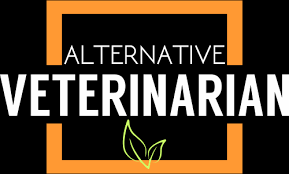ALTERNATIVE VETERINARY MEDICINE
Dr. Varsha Mishra
M.V.Sc Scholar, Department of Veterinary Medicine,
College of Veterinary Science & A. H., Jabalpur, NDVSU, Jabalpur, Madhya Pradesh
Abstract
Alternative veterinary medicine also known as Complementary veterinary medicine is appearing currently to be a promising integrated holistic approach for the wellbeing of pet patients throughout the world. Increasing incidences of antibiotic resistance, drug intolerance and reduced side effects of newer alternatives with forever changing lifestyles of pets and pet owners is paving way to various alternative forms of therapies involving herbal medicine, homeopathic medicines, acupuncture, chiropractic manipulation, natural feeding, laser therapy and other natural therapies.
Key words-: Alternative Medicine, Chiropractic manipulation , Acupuncture, Laser therapy
The basic idea behind homeopathy is like cures like i.e., treatment of disease with dilutions of substances that in undiluted form might cause symptoms of that same disease. Chronic and recurring nature of several diseases has led to a search for effective alternatives. The respond to homeopathic medicine include skin allergies, ear infections, urinary tract infections, asthma, diabetes, inflammatory bowel disease, epilepsy, thyroid disease and any other ailments. Sulphur for fox mange and flea allergy dermatitis, Cantharis for recurrent cystitis, Bryonia for arthritis, Arsenicum album for gastro-enteritis, Arnica for injuries and wound healing post surgeries have shown results at several dilutions. Hence, it follows “law of minimum dose” that states “the more diluted a homeopathic preparation is, the greater its effectiveness will be”. Though the basis of homeopathy is still yet to be fully established in veterinary, it can be a great alternative.
Acupuncture is an aspect of Traditional Chinese Veterinary Medicine that focuses on restoring the energy balance in the body to promote healing. Researches have shown that acupuncture works through modulating the nerve pathways by physically interacting with nerve fibers in the skin and underlying tissues that causes release of neurochemicals from brain and spinal cord upon insertion of fine needles into the dog’s body at specified points, called acupuncture points. Often used to treat dogs with arthritis, joint inflammation, IVDD, hip dysplasia or degenerative joint disease . Though it can’t cure the exact disease but can reduce the unnecessary stress of medications by relieving few symptoms. For example, it can provide relief to few symptoms in dogs suffering from cancer, diabetes, Addison’s disease and cushing’s disease.
Chiropractic manipulation involves manipulating the spine, extremities, or skull to treat diseases and any vertebrate could be a candidate to it including, cattle, horse, dog and rabbit. It focuses on how the joints of the spine and extremities move. They relate these movements with a dog’s overall health and wellness, hence, bridging the gap between them. When this movement gets hindered, dogs usually can experience repetitive stress, injuries and sprains, these conditions include hip dysplasia, osteoarthritis, chronic neck or back pain, intervertebral disk disease and central nervous system disorders. In order to maintain appropriate posture and limb positioning to prevent problems from happening in the future, chiropractic can also serve as preventive care for dogs predisposed to joint or spinal diseases or dogs prone to arthritis. Though it helps relieving the discomfort it should always be supplemented with proper medications to cure the actual cause of disease.
Increasing search for better non-invasive alternatives in veterinary filed has led to the discovery of utilization of laser therapy for veterinarians. Laser an acronym for “light amplification of stimulated emission of radiation” refers to a unit that emits focused, penetrating light beams in three forms: monochromatic, coherent and collimated. Among which coherent and collimation form give laser penetrating power to a restricted area so that nearby tissues remain unaffected. Therapeutic laser utilize light waves of specific wavelength to cause photo-biomodulation i.e., light absorbed by cellular components stimulates electrons that activates cells to promote growth, proliferation and repair. The responds to laser therapy depends on the type an depth of tissue on which specific wavelength of the light is delivered. Chronic arthritis, surgical incisions, tendon and ligament injuries, traumatic injuries are among the several indications for laser therapy.
Veterinary medicine is a wholesome field involving every companion of human on earth from size big to small and encompasses vast diversity, hence there are several approaches to various ailments found in them. Therapies like physiotherapy, aromatherapy, magnet therapy, ultra sound therapy, crystal therapy, osteopathy, anthroposophy, hydrotherapy are among the several approaches which are also finding their ways into veterinary through holistic veterinary medicine approach. There implementation requires precise guidance and scientific proofs for applications through proper guidance from a Veterinarian.
References:
- American Holistic Veterinary Medical Association. What is holistic veterinary medicine?
https://www.ahvma.org/
- Alternative vet organization. Holistic, Alternative, Natural or complementary? https://www.alternativevet.org/
ALTERNATIVE MEDICINES ON THE FARM: ETHNOVETERINARY MEDICINES (EVM)


